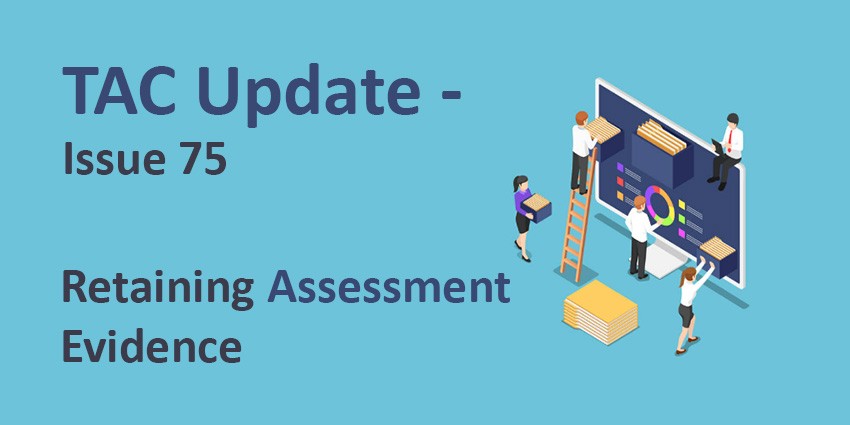
Welcome to the July TAC Update
The Council is guided by a number of principles that communicate the way in which it undertakes its business – one of these principles is that the Council maintains a culture of continuous improvement.
The 2020-2023 TAC Strategic Plan identifies how the Council facilitates this continuous improvement and includes:
- the Council considers stakeholder feedback to inform its regulatory services and functions; and
- gathers reliable data to measure its performance and inform its planning, policies and services
These continuous improvement activities are in line with the National Standards for VET Regulators and ensures the Council provides leadership by demonstrating commitment to evaluating and improving our regulatory practice. In many ways, this leadership is no different to the requirements and expectations placed on RTOs through Standard 2 of the Standards for RTOs.
One strategy the Council implements in order to meet its continuous improvement commitments is to undertake a survey. Every two years the Council conducts surveys of its RTOs and stakeholders that seek to gather important information about the Council’s performance and effectiveness, regulatory services, and helps to focus priorities over the short to medium term.
The last survey was conducted in 2020 and the results contributed to establishing TAC's priorities in the TAC 2021-2023 Regulatory Strategy and the TAC Education Program.
The 2022 survey will commence in August and be finalised in the coming months with information provided to RTOs shortly through the legally responsible person and registration contact. The Council encourages RTOs to complete the survey as it provides valuable information that ensures Council continues to deliver a fit for purpose and responsive regulatory service.
TAC Education Program - upcoming events
August
9 - Design and Development of an Assessment System
31 - Understanding Training Packages
September
8 - Reasonable Adjustment and Inclusive Practice
14 - Becoming an RTO
20 - The Course Accreditation Process
Click here to view the full TAC Education Program schedule and/or register for an event.
The full list of Education Program recordings and resources is also available.
Focus on quality - Retaining Assessment Evidence
Assessment is the process of collecting evidence and making judgements on whether competency has been achieved, and decisions about a student's competency must be based on evidence that meets the Rules of Evidence.
For RTO's, there is a constant process of gathering evidence about student performance - but when considering what evidence should be retained and for what purpose, it is easy for an RTO to become overwhelmed by evidence overload.
There are a number of levels of evidence and uses to consider:
- The evidence sources (knowledge tests, observation tools, tasks, projects);
- The assessment evidence (test answers, recorded performances, products, record books, observation checklists, assessment summaries);
- The assessment judgement (Competent or Not yet competent); and
- Appeals and outcomes.
The most unmanageable evidence for an RTO can be the assessment evidence as some of this evidence may be bulky, transient or perishable. So how much of this evidence of student work should an RTO retain?
An RTO must keep this evidence during the delivery of the training product to the point where the decision is made, and beyond the point where an appeal might be lodged. An RTO will also need to keep a selection of records for internal or external audits and for assessment validation activities. These records can be kept in their original form, scanned or digitised.
There are times that RTOs are required to keep training and assessment records related to funding or other legislative requirements and it’s the RTOs responsibility to ensure records are kept for these requirements.
For further information on retaining assessment evidence and RTO requirements for record management, please refer to the TAC Fact Sheet: Records Management.
TAC RTO Event 2022
Did you miss the TAC Event held on the 18 May 2022? A video recording of the workshop for TAC registered training organisations is now available for viewing here.
The event offered TAC RTOs and their staff an opportunity to network and discuss quality training and assessment. The video recording comprises presentations by Anne Driscoll, Chair of the Council; Morena Stanley, Director Training Regulation TAC Secretariat; and two workshops including:
- Strategies for quality training and delivery; and
- Assessment - avoiding the pitfalls.
AISC announcement for First Aid and CPR training and assessment.
On 22 June 2022 the Australian Industry and Skills Committee (AISC) issued a statement noting that all reasonable adjustments for the assessment of first aid units of competency implemented during the pandemic should be removed before the 1 September 2022.
This will mean training and assessment activities undertaken during First Aid and CPR courses will revert to pre-COVID-19 conditions. Specifically, learners will be required to demonstrate rescue breathing techniques on manikins and not simulate such skills to the side of the manikin, as previously allowed during the pandemic.
For further information refer to the AISC Statement.
Course Accreditation updates
The Council extended the accreditation period for the following course:
- 52830WA Course in Electrical Trade Licensing to 31 January 2022
National Skills Week
National Skills Week 2022 will be held this year from 22 - 28 August. This annual event is dedicated to raising the profile and status of vocational learning and showcasing career opportunities.
This year's Skills Week is centred around the theme A Universe of Skills: Go Beyond Your Imagination and asks people to re-imagine possibilities for careers, opportunities and emerging industries and to discover careers, pathways and opportunities in skills and Vocational Education that they may not know about, have thought about or even imagined.
Click here for further information on the events of this year.
Other important updates
Latest NCVER Reports
NCVER have released a number of new reports including:
- Apprentices and trainees 2021: December quarter
- VET in Schools 2021
- Government-funded students and courses 2021
- VET's role in transforming the future


